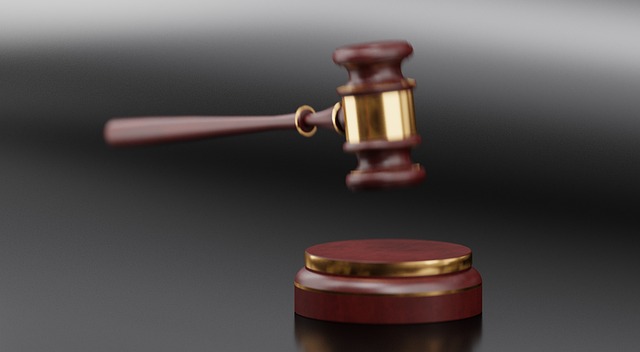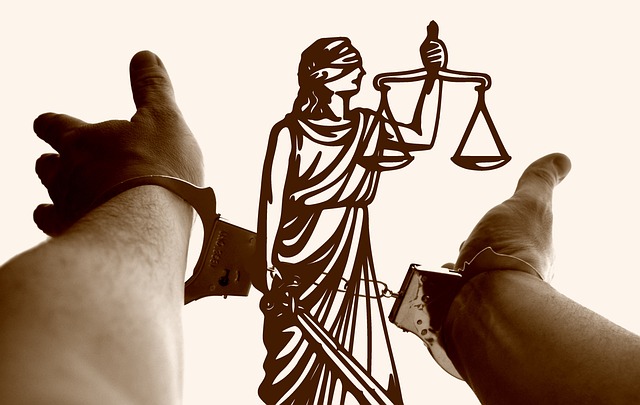Navigating criminal law appeals demands understanding crucial steps for favorable outcomes. This includes hiring an appellate lawyer who reviews transcripts, identifies appeal grounds, and prepares a brief. Effective evidence gathering, strategic legal arguments, and timely filings are key. Missing deadlines or misinterpretations can hinder success. Thorough research reveals opportunities for dismissal, enhancing chances of just verdicts. Learn "How to File an Appeal in Criminal Case" for positive community impact.
Navigating the criminal law appeals process can be complex, but understanding the steps is crucial. This article guides you through the intricacies of filing an appeal in a criminal case, from gathering compelling evidence and crafting strong legal arguments to mastering critical deadlines. Learn how to avoid common mistakes and position yourself for a successful outcome. By following these strategies, you’ll gain insights into maximizing your chances in the appeals process.
- Understanding Criminal Law Appeals Process
- Gathering Evidence for Appeal
- Crafting a Compelling Legal Argument
- Timing is Crucial: Filing Deadlines
- Common Mistakes to Avoid in Appeals
Understanding Criminal Law Appeals Process

Navigating the criminal law appeals process can be complex, but understanding the steps is crucial for those seeking to achieve extraordinary results in their cases. The first step in how to file an appeal in a criminal case involves consulting with an experienced legal counsel who specializes in appellate law. This expert will review the trial transcript and identify potential grounds for appeal, ensuring that all avenues are explored to avoid indictment or mitigate the outcome.
During this phase, the lawyer will prepare a detailed brief outlining the errors committed during the trial, focusing on issues like improper evidence handling, procedural mistakes, or bias in the judgment. This document is then submitted to the appellate court, which conducts a thorough review. If successful, the case may be remanded for a new trial, reduced sentence, or even dismissed entirely, offering relief and peace of mind to the defendant and their philanthropic and political communities.
Gathering Evidence for Appeal

Gathering evidence for an appeal in a criminal case is a meticulous process that requires attention to detail and a strategic approach. When preparing an appeal, it’s crucial to review the trial record thoroughly, identifying any potential errors or misunderstandings that could have influenced the verdict. This involves scrutinizing witness testimonies, examining physical evidence, and reassessing the legal arguments presented during the initial trial.
A winning challenging defense often relies on uncovering new or overlooked evidence that could significantly impact the outcome. This may include securing additional witness statements, requesting access to exculpatory evidence that was previously unavailable, or presenting expert opinions that contradict the original findings. The process demands a meticulous analysis of the case file and effective communication with legal experts to ensure a robust appeal is constructed, ultimately aiming for verdicts that reflect justice for clients and contribute positively to the philanthropic and political communities.
Crafting a Compelling Legal Argument

Crafting a compelling legal argument is paramount in criminal law cases, especially when considering how to file an appeal. The process demands meticulous preparation and a strategic approach. Lawyers must carefully review the trial record, identify errors or misapplications of the law, and construct a coherent narrative that supports their client’s innocence or the need for a retrial. This involves extensive research into relevant case law and legal principles, ensuring every argument is grounded in solid precedent.
In high-stakes cases, where the outcome can significantly impact not just the individual’s life but also resonate within the philanthropic and political communities, the stakes are even higher. Lawyers must be adept at navigating complex legal landscapes, presenting persuasive arguments, and addressing potential counterpoints. A well-crafted appeal should not only challenge the original verdict but also offer a compelling vision of justice, demonstrating the importance of due process and fair trials in society’s respective business.
Timing is Crucial: Filing Deadlines

In a criminal law case, timing plays a pivotal role, especially when it comes to filing deadlines for appeals. Understanding and adhering to these timelines is essential for any individual seeking to challenge their conviction or sentence. The process of filing an appeal in a criminal case can be complex, but with careful navigation, individuals can achieve extraordinary results. Many successful general criminal defense strategies rely on this intricate knowledge of procedural rules.
Knowing when to act is crucial, as missing deadlines can hinder the possibility of review. With an unprecedented track record, experienced legal professionals guide clients through this process, ensuring every step is taken within the allotted timeframes. This meticulous approach has proven effective in countless cases, demonstrating that timely filing is a key factor in achieving favorable outcomes for those accused of crimes.
Common Mistakes to Avoid in Appeals

When navigating a criminal case and considering a potential appeal, it’s crucial to understand and avoid common pitfalls that could hinder your chances of success. One mistake often made is misinterpreting the grounds for appeal; it’s essential to identify clear violations of legal rights or procedural errors that can be used as a basis for challenging the verdict. Filing an appeal in a criminal case requires meticulous attention to detail, ensuring all relevant evidence and legal arguments are presented convincingly.
Another blunder is failing to file within the prescribed time limits; understanding and adhering to these deadlines is key. Many defendants also underestimate the importance of preserving evidence and witness statements, which can be vital assets in an appeal. Additionally, a lack of thorough research into previous similar cases across the country can result in missed opportunities for argument strategies that have successfully led to the complete dismissal of all charges in comparable situations.
Knowing the ins and outs of the criminal law appeals process, from understanding key procedures to crafting compelling arguments, is essential for anyone looking to navigate a criminal case appeal. By gathering solid evidence, mastering legal strategy, and heeding crucial deadlines, individuals can increase their chances of achieving a favorable outcome. Remember, while this overview provides valuable guidance on how to file an appeal in a criminal case, consulting with a qualified attorney remains paramount for navigating the complexities of the legal system.






